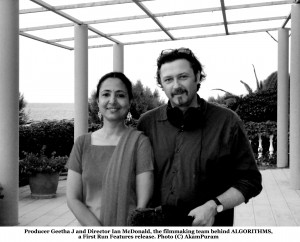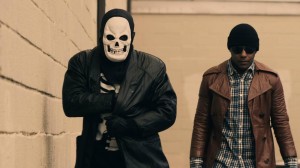Please note the Monday, October 20 screening of TAMING OF THE SHREW at the Music Hall is cancelled. We will still screen at 1 PM on Tuesday, October 21. The Monday screenings at other Laemmle venues will proceed.
WATCHERS OF THE SKY Producer Q&A’s this Weekend at the Royal and Tuesday at the Town Center
WATCHERS OF THE SKY producer Amelia Green-Dove will participate in Q&A’s at the Royal after the 7 PM screenings on Saturday, October 18 and Monday, October 20, and after the 1 and 4 PM screenings on Sunday, October 19. She’ll do the same after the 7 PM screening at the Town Center 5 in Encino on Tuesday, October 21.
LIFE INSIDE OUT: “Boy’s Triumph Over Autism Inspires New Film”
From the San Diego Union-Tribune, October 2, by Pam Kragen:
“Boy’s triumph over autism inspires new film: Actress writes movie that draws on her onetime mentoring relationship with San Marcos college student.”
SAN MARCOS — When he was a toddler, Cal State San Marcos freshman Julian Kalb overcame an autism-related communication disorder with the help of L.A. actress Maggie Baird. Fifteen years later, he’s returning the favor as executive producer for Baird’s new film — a drama inspired by their long-ago mentoring relationship.
“Baird co-wrote and stars in “Life Inside Out,” the story of a mother who helps her socially awkward son find himself through music. Baird produced the low-budget, independent film — which opens a weeklong run Oct. 17 at the UltraStar Cinema Mission Valley — with the financial support of family and friends, including Julian, 20, of San Marcos, and his father, Ken Kalb, of Rancho Santa Fe.
“When Maggie started working with Julian, she was his helper and now, flash-forward 15 years, and he can help his teacher make her dream come true,” said Kalb, a film buff and entrepreneur who has started several software and telecommunications companies. He said he and his son cashed in some of their Apple stock to invest in Baird’s movie.
The title, “Life Inside Out,” comes from a song lyric in the film about discovering your inner self, something experienced in life by Julian and on film by the fictional teen son.
“It’s about living your life authentically and being seen for who you really are,” Baird said. “In the film, the mother is dealing with a child who has not found his thing until music clicks for him, and Julian was definitely an inspiration for that.”
The Kalbs first met Baird in the late 1990s, when they lived on the same block in the L.A. neighborhood of Los Feliz. At the time, Baird was a member of L.A.’s comedy improv group The Groundlings. Kalb asked her if she could do some improv and theater exercises with Julian to help him better express his feelings. Beginning at age 2, Julian could only speak by parroting lines from cartoons and movies and he was unable to carry on a conversation, Kalb said.
Baird said she had no training as a therapist, but she decided to improvise when she first sat down with Julian. When he started talking to her with scripted lines he’d memorized from a Charlie Brown television special, she responded to him as Charlie Brown’s arch-nemesis, Lucy.
“I saw a light go on in his eyes when he saw that I was buying into it and we had long conversations as those characters,” she said. “Gradually over time, I expanded the dialogue so he learned the natural give and take of conversation.”
Baird worked with Julian for two years until the Kalbs moved to Solana Beach. With his newfound love for theater, Julian went on to perform in more than a dozen youth-cast musicals with J*Company in La Jolla. The Torrey Pines High School graduate now lives on campus at Cal State San Marcos, where he’s majoring in visual and performing arts.
“When I get onstage, I don’t feel very nervous at all,” he said. “It’s fun creating a character. I would like to work behind the scenes in the film industry as an executive producer and maybe work as a voice artist.”
Baird stayed in touch with the Kalbs over the years, and said she’s been impressed by how Julian has blossomed.
“He’s funny and charming and is still an amazing mimic,” she said.
Baird began writing the “Life Inside Out” screenplay in 2012 with her friend and fellow singer/comedian Lori Nasso. It’s the dual story of a mother of three who rediscovers her love of music at an open-mic night, and her social outcast son Shane, who finds his own musical voice along the way. She co-stars in the movie with her real-life son, 17-year-old Finneas O’Connell, an actor and singer who fronts the L.A. band The Slightlys.
Since its release on the festival circuit earlier this year, “Life Inside Out” has won 10 awards, picked up a distributor and is opening this month in several cities around the country.
“I’ve been delighted at how well it’s been received,” Baird said. “Audiences have responded so positively. Men and women have come up to me and said over and over ‘this is my story.’ ”
Kalb said that when he and Julian agreed to invest in the movie, they did it out of gratitude and friendship, not expecting it would become a festival hit.
“It’s been a remarkable experience and such a nice surprise,” he said. “We gave Maggie the money because we love her and she’s a life force, not because we expected it to become wildly successful. We’re just happy to be a part of it.”
pam.kragen@utsandiego.com
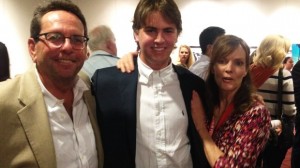
E-TEAM Filmmakers in Person at the Royal
E-TEAM follows the high-stakes work of four fiercely intrepid human rights investigators who are the first on the ground in war torn countries like Syria and Libya to record and expose human rights violations in the midst of devastating wars.
E-TEAM filmmakers Ross Kauffman and Katie Chevigny will participate in Q&A’s at the Royal after the 7:45 screenings on Friday and Saturday, October 24 and 25. On Friday they will be joined by two of the film’s subjects, Anna and Ole.
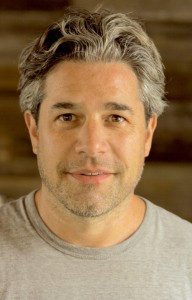

ALGORITHMS Filmmakers in Person at the TC5 for Q&A’s
In India, a group of boys dream of becoming chess grandmasters. But this is no ordinary chess and these are no ordinary players. ALGORITHMS is a documentary that transports us into the little known world of blind chess. Filmed over three years in different parts of India, ALGORITHMS follows three boys and an adult champion who not only aspires to bring global recognition to India’s blind chess players, but also wants to encourage all blind children to play chess.
ALGORITHMS director Ian McDonald and producer Geetha J will participate in Q&A’s at our Town Center 5 theater after the 7:10 screenings on Friday and Saturday, October 17 and 18 and after the 1:40 show on Sunday the 19th.
EVOLUTION OF A CRIMINAL Director in Person at the Music Hall
How does a 16-year-old honor student evolve into a bank robber? In EVOLUTION OF A CRIMINAL, filmmaker Darius Clark Monroe asks this very question about himself. After seeing his mother and stepfather struggle to make ends meet while living outside of Houston, Monroe decided to help them by robbing a bank with two friends. Executive produced by Spike Lee.
Monroe, director of this acclaimed new autobiographical documentary, will participate in Q&A’s after the 7:10 screenings at the Music Hall on Friday, October 17 and Tuesday, October 21.
LIFE INSIDE OUT Q&A’s All Week at the Playhouse 7
LIFE INSIDE OUT tells the story of Laura, the mother of three teenage boys, and her youngest son Shane, the family misfit and a disappointment to his father. When Laura stumbles upon her long forgotten guitar, she is taken under its spell and rediscovers her love for song writing.
LIFE INSIDE OUT lead actress/co-writer Maggie Baird, director Jill D’Agnenica, co-writer Lori collins and/or producer Tessa Bell will participate in Q&A’s after most screenings:
10/17: Collins for the 1:50 and 4:30 shows; Baird, D’Agnenica, Collins and Bell after the 7:10 screening; Baird, D’Agnenica and Bell after the 9:50 show;
10/18: D’Agnenica and Baird after the 1:50 screening; Baird, D’Agnenica and Bell after the 4:30, 7:10 and 9:50 shows;
10/19: Baird, D’Agnenica and Bell after the 1:50, 4:30, 7:10 and 9:50 shows;
10/20: Baird after the 4:30, 7:10 and 9:50 screenings;
10/21: Bell after the 1:50, 4:30, 7:10 and 9:50 screenings;
10/22: Baird after the 4:30, 7:10 and 9:50 shows;
10/23: Baird after all screenings with Bell joining her for the first two and D’Agnenica for the 7:10.

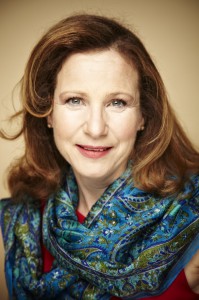
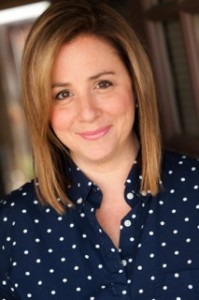
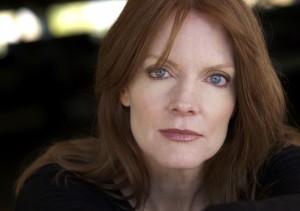
THE DECENT ONE Q&A’s with Filmmaker Vanessa Lappa this Weekend at the Music Hall
A recently discovered cache of hundreds of personal letters, diaries, and photographs belonging to Nazi Gestapo chief Heinrich Himmler seems to reveal a thoughtful, loving husband and devoted father to his daughter, Gudrun. The documents were hidden in Tel Aviv for decades and sold to the father of the Israeli documentary filmmaker, Vanessa Lapa. With her film THE DECENT ONE she has fashioned a fascinating case study: a portrait of the man responsible for some of the worst atrocities of the Second World War, who thought of himself in heroic terms. Ms. Lapa will discuss Himmler and her film during Q&A’s after the 7:20 PM screenings of THE DECENT ONE at the Music Hall, Friday-Sunday, October 10-12.
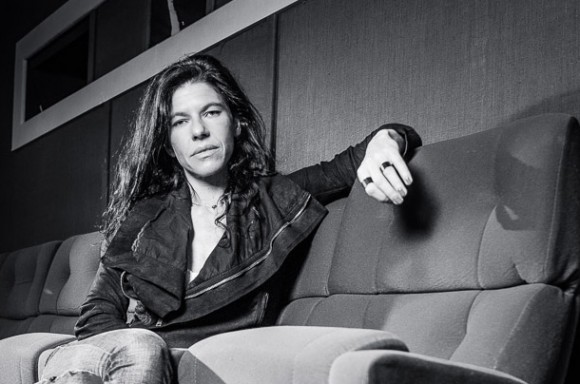
- « Previous Page
- 1
- …
- 206
- 207
- 208
- 209
- 210
- …
- 248
- Next Page »

